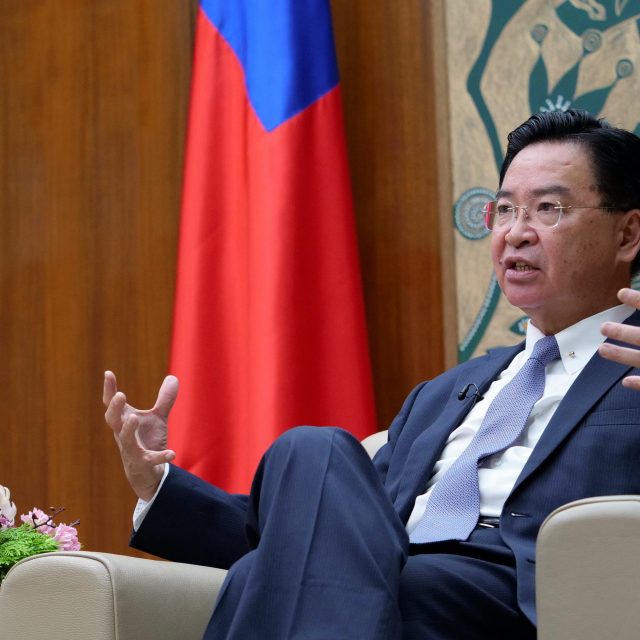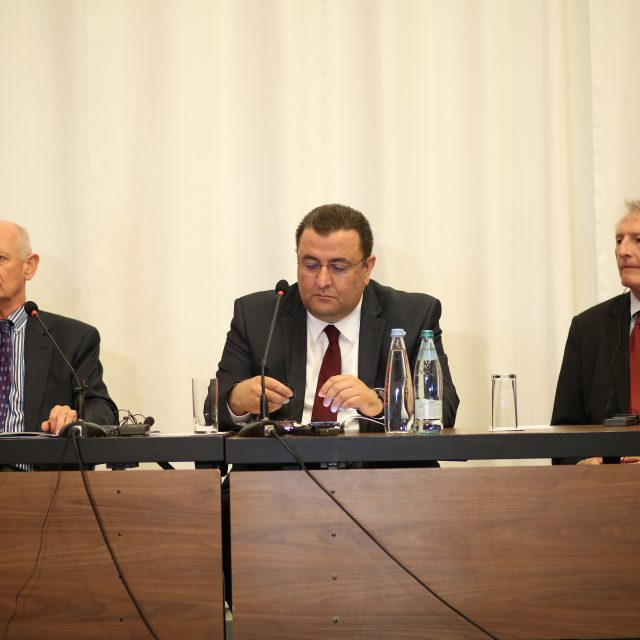European nations may well be on the threshold of a new migrant crisis that will dwarf even that of 2015–16.
That’s one of several stark messages to emerge from an exhaustive new book on migration – “People Power – why we need more migrants” – by the highly respected commentator on EU affairs, Giles Merritt.
The thorny issue of migration, of course, has rarely been far away from the headlines for years, only being side lined, and then only temporarily, by Brexit and the health pandemic.
Forlorn images of yet more migrants recently trying to cross the English Channel, with varying degrees of success, have yet again thrust the subject back up the agenda and into the public mindset.
Yes, the fight against migrant exploitation and smuggling and “illegal” immigration continue to exercise the minds of the “great and good.”
Even the EU’s own coast guard agency, Frontex, has been at the centre of disturbing allegations of violations of human rights of migrants at the external borders of the European Union.
In an effort to inject fresh and some much needed innovative thinking into it all, Merritt has penned a particularly detailed examination of migration in all its guises.
Migrant smuggling, it is generally agreed, has posed a major humanitarian and security challenge for the EU in recent years. For example, it is estimated that migrant smugglers facilitated the journeys of the majority of the more than 1 million people who entered the EU irregularly in 2015 and 2016.
Some argue that by reducing the numbers of “irregular” migrants, the West will ensure an asylum and migration management that is sustainable over time to handle future crises.
Merritt, a former Brussels bureau chief for the Financial Times, speaks of the urgency of reforming European migration laws, not least to prevent irregular migration and tackle human trafficking.
He starts what is a highly impressive work by “exploding” what he calls the “ten most misleading myths” about migration, including the assertion that Europe has no need of migrants
Other commonly held “myths” he seeks to dispel range from the claim that migrants ‘take jobs’ from native Europeans, that they raise the risk of jihadist terrorism and that they ‘sponge’ off Europeans social welfare.
All quite wrong and dangerously so, says Merritt.
Initially, the heart-rending images of people drowned in the Mediterranean or rescued by coastguards and freelance non-governmental organization (NGO) operations suggested a new humanitarian mood in Europe, he notes.
“But,” he goes on to say, “emotional responses of this sort proved to be less reliable and long-lasting than they had at first seemed.”
For the present, the “game-changing” effects of the coronavirus must be added to the debate about migration, he cautions and, like Covid-19, migration is a “global earthquake.”
It means that, “fuelled” by the troubled aftermath of Covid-19, migration will affect many of Europe’s “most fundamental” socio-economic structures, and therefore “will probably upset largely consensual national political systems.”
He writes, “The immigration outlook was bad enough before the coronavirus, and now it is more politically toxic than ever.”
There are, he suggests, four key elements:
1. Despite Covid-19’s lengthening dole queues, longer-term economic forces mean Europe needs more migrants, not fewer.
2. The pressures generated by Covid-19 are driving refugees and economic migrants towards Europe in unprecedented numbers.
3. Economic recovery policies post-coronavirus are making the integration of migrants harder and more politically explosive and
4. Post-coronavirus geopolitics are reshaping Europe’s neighbourhood.
Europeans, he laments, rarely display the same positive attitude to migration as Americans. Although the migrant crisis of 2015–16 briefly sparked public sympathy for refugees “this soon turned into bitter disputes between EU governments over burden sharing.”
He adds, “These have been simmering since then, and now threaten to boil furiously.”
Whatever the state of public opinion, European governments know they must learn to manage greater flows of newcomers, says Merritt, whose impressive CV includes his many years with the renowned Friends of Europe think tank which he founded.
“The rhetoric of politicians, notably but not exclusively populist, will remain hostile, fuelled by the recession and persistent fears of renewed coronavirus outbreaks, but planners and civil servants know they must adjust to the demographic pressures that are shaping the future,” he predicts.
He also highlights the need to make the distinction, which is rarely done, between refugees and economic migrants.
As for the EU, there’s not only pressure from the European Commission for member countries to accept more refugees, there is also pressure from beyond Brussels bubble for a “rethink” of existing EU policy on immigration and asylum.
Merritt says, “The economics of migration bear little relation to its politics, as was illustrated when Europe’s national leaders met in Salzburg in September 2018 to discuss a much trumpeted deal on immigration.
“Finger-pointing and political grandstanding were the unedifying features of this special summit.”
Angela Merkel, the outgoing Germany chancellor, does not escape criticism with Merritt saying her “breezy response to the influx, wir schaff en das! (we can do it), came back to haunt her. Resettling so many people created serious upheavals and triggered a new political volatility.”
But his home country, the UK, is also not without blame.
“In the UK, before Brexit cast its long shadow, foreign students were bringing in over £12 billion a year in foreign exchange. A sizeable number of them, perhaps as many as 15–20 per cent, had been staying on after graduation to make a life in Britain. But now the stricter visa controls, designed to discourage both EU and non-European migrant labour, are changing that.”
The Commission, he argues, should be working to persuade member governments that they must substantially boost their budget contributions for migration, even if that task is made harder by Brexit and the shortfall in UK financial contributions.
His message?
“Europe must stop pretending immigration is a fleeting phenomenon. It isn’t temporary, and must instead be recognized as a long-term game changer.”
The exceptionally well-connected Merritt is a highly respected and seasoned veteran of EU affairs and, irrespective of whether you agree with him or not, this is a mightily impressive work and his views most certainly deserve close attention, not least in the corridors of power.
The book is on sale at Filigranes book store at 39-42 Avenue des Arts in Brussels, from the Filigranes E-shop (+322 504 7839) or from Amazon in both paperback and Kindle versions.




